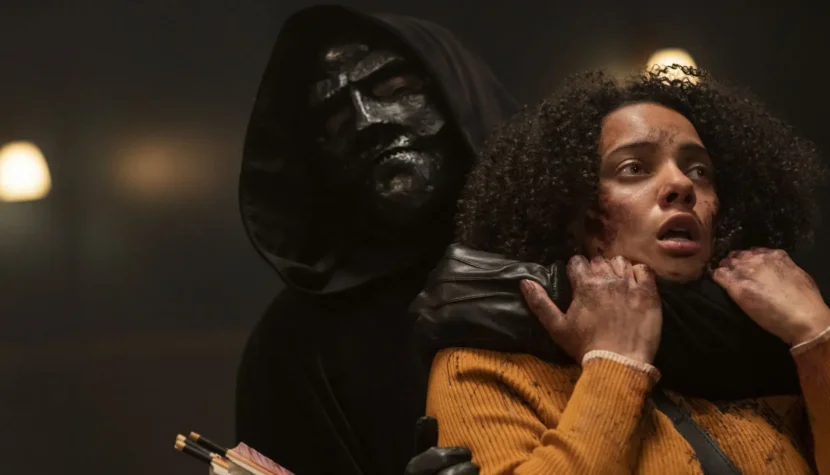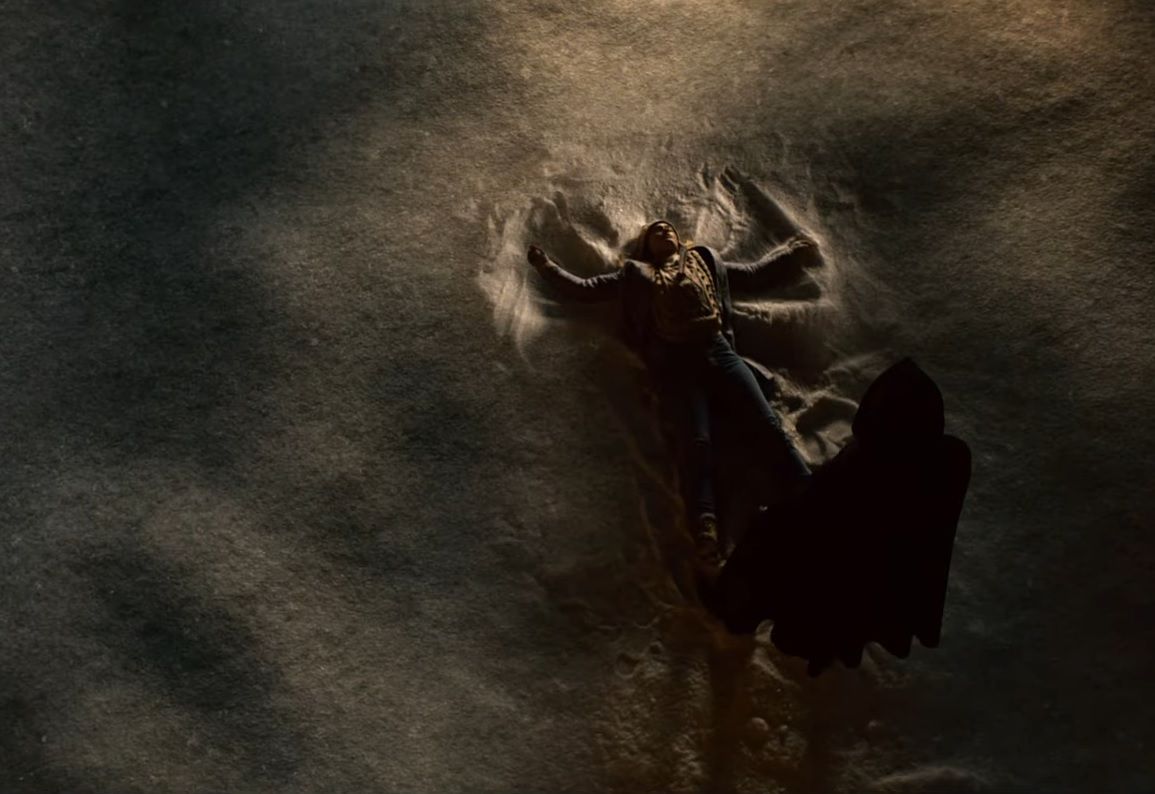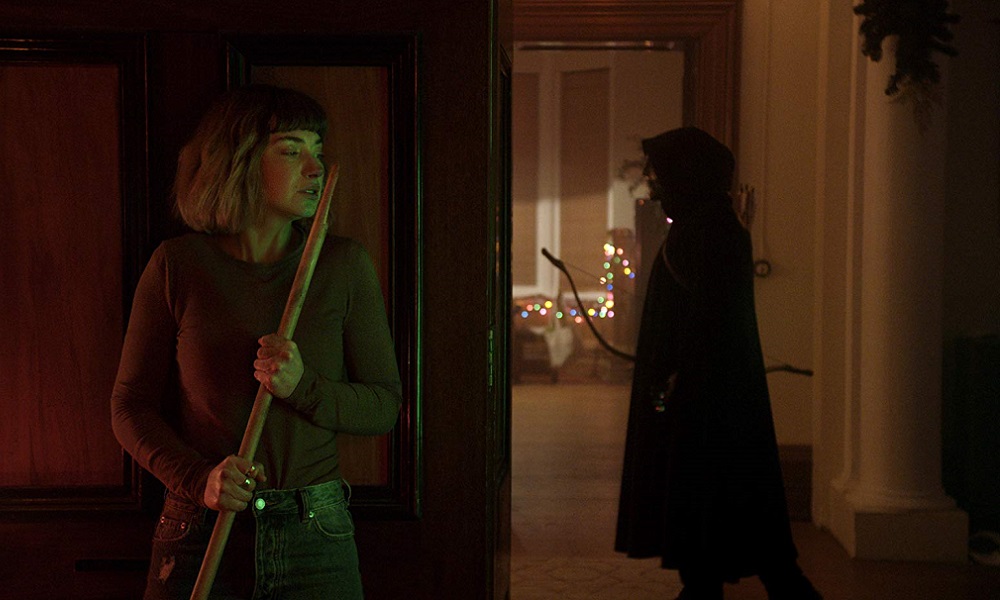BLACK CHRISTMAS (2019): The Sisterhood Strikes Back

It’s been a long time since I’ve seen a movie, let alone a horror movie, where the ideology was presented in such an aggressive and venomous way. Let’s start from the beginning. In 1974, Canadian director Bob Clark made Black Christmas, a thriller about female students being murdered on campus. The film had a gloomy, unholiday-like atmosphere, didn’t shy away from cruelty (though the murder scenes didn’t revel in gore), and its finale left the identity of the attacker ambiguous. To this day, Clark’s work is regarded with respect as a pioneering slasher, predating Halloween and Friday the 13th by several years. Naturally, we had to expect a remake — though the current film is already the second one. In 2006, Glen Morgan directed Black Christmas (still titled as such in the original), an unremarkable, typical for the decade reboot of the classic, featuring a trendy cast of the time, including Mary Elizabeth Winstead and Michelle Trachtenberg. This raises the question: why remake the same film a third time, especially when the previous attempt wasn’t that long ago?
Sophia Takal’s Black Christmas strives to be a very contemporary film — it ostensibly takes the original’s premise of female students being terrorized by an unknown male, but, in the #MeToo era, transforms this horror trope into a pretext for commentary on today’s world. We follow Riley (the always reliable Imogen Poots), a reserved senior who feels at ease with her “sisters” from the sorority (the English language differentiates male and female forms, but we lack such terms; in this context, “association” might work better, or perhaps a neologism like “sisterhood,” as ridiculous as that may sound). Early on, we learn that three years prior, Riley was raped by a high-ranking male student at the university, who faced no consequences. Meanwhile, the fictional Hawthorne College itself is steeped in the chauvinistic ideology of its founder, who regarded men as nearly superhuman. It’s unclear why any woman would want to study there, but cinema has depicted stranger things.

Unsurprisingly, in the era of modern awareness, the students succeeded in having Hawthorne’s bust removed from the school display and are now campaigning to dismiss the English literature professor (poor Cary Elwes). Why? Because the curriculum lacks works by women, as well as Black or LGBTQ authors. This was the first moment that made my blood boil. While I understand the need to move away from the dominance of the white heterosexual male in literary history (assuming there are significant and important authors of different races, sexual orientations, or genders, as well as experts who can properly evaluate their works), it’s a different matter to try to reshape cultural heritage to fit the whims of an extreme student activist. Enter Kris, Riley’s close friend, portrayed by Aleyse Shannon as an angry, militant feminist who believes she’s always right, even when she isn’t.
For a while, the script by Takal and April Wolfe isn’t as sharp in its messaging as Kris might want, and it manages to build a fairly tense narrative. When Riley’s rapist visits campus, she copes with her fear through a Christmas performance in which she sings about her experience. It’s a strong scene, thanks to Poots’ acting and the Shakespearean twist of turning an ostensibly innocent show into an accusation, intensifying the conflict and heightening the tension. Alongside this runs the classic Black Christmas thread — a series of murders of female students committed by a masked figure. These moments are competently filmed, with the attacks often referencing the original film’s methods (quite creatively) and one scene replicating a distinctive, striking shot from The Exorcist III. Even without watching the spoiler-heavy trailer, we know that these two plotlines will eventually converge.
The turning point comes midway through the film with the best scene, briefly altering my perception of the creators’ intentions. A video of Riley’s performance goes viral, sparking conflict between her and Kris. Riley suddenly accuses Kris of exactly what I had been thinking — that she uses aggressive language, doesn’t listen to anyone, and her actions do more harm than good. Kris, in turn, claims that Riley is speaking out of fear and needs to free herself from it. Meanwhile, Nate, another student’s boyfriend, expresses his frustration at being caught in the middle of the argument. At that moment, I thought: this is good, as the creators aren’t merely criticizing one side but bringing to the screen a dialogue (or rather, a quarrel) between different perspectives, including those tired of the complaints from both camps. It’s no coincidence that Nate is a man, but we can’t have everything.

Unfortunately, Takal ultimately takes a side, torpedoing this discourse in a way that demeans both men and women. Riley remains a prisoner of her trauma, while Nate becomes a victim of a few beers and mind control (yes, you read that correctly — mind control). Only Kris seems to maintain clarity, and her aggressive voice dominates a film so intent on pushing its ideology that it loses any semblance of credibility, long before it’s revealed that [SPOILER] the murders are orchestrated by a supernatural force. [END SPOILER]
Black Christmas (2019) is an irritating film about a stark division between men and women. Reconciliation is impossible because men are either inherently evil or weak enough to fall victim to brainwashing. Women, on the other hand, are immune to both, unless one betrays her gender — in which case, there’s no mercy. Moreover, the new film appears to oppose the original. It seems to want no connection to Clark’s work (or slasher tropes in general), and — echoing Kris’ worldview — seeks to replace the original in viewers’ memories and film history books.

